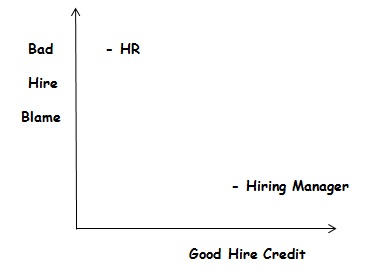I think we all know that one person in our life that thinks they get the best deal on everything! They consider themselves the ultra-negotiator, the person sales people hate to see coming! You know the person -they go and buy a $40,000 car and call and tell you how they got it for $27,000 and the car dealership actually lost money on them. These are the same people that believe they can also ‘negotiate’ their salary. There are some realities we face as HR Pros that most employees don’t get. While we have rules and processes and salary bands – quite honestly, very little negotiation goes into any salary offer. Younger people are always told, usually by their Dad or some cheesy uncle, to “Negotiate” their salary – “Never take the first offer!”
To me there are 7 main realities about negotiating salaries, and here they are:
1. A good HR/Talent Pro will pre-close you one what you are expecting. This is truly the point where you should be negotiating – the first call. 99% of candidates miss this opportunity. This is also where you can truly find out what the position pays by playing ‘the game’ – Go in super high and work backwards – you’ll eventually get to the ceiling.
2. Health Benefits, 401K match, holidays – are all non-negotiable, unless you’re negotiating a C-suite offer.
3. Vacation days are usually negotiable – but only if you’re coming in with experience – most entry levels have no room to negotiate this – and if you did negotiate, as an entry level, and get more vacation than they originally offered, calm down, they were willing to give this already – it was a test.
4. In most positions you have a 10% range within a position to negotiate salary for an experienced professional – they offer $60K – you can probably get $65K without much hassle.
4a. There are 2 schools of thought on this:
A. The fewer the people in a position the easier it is to negotiate salary – the theory being we can hire Tim at $65K, we have Jill is already hired and working at $60K – but it will only cost us $5K to move her up to that same level – everyone’s happy.
B. The more people in a certain position the harder it becomes to negotiate because the example above, pay inequity now becomes very expensive, and ‘pay creep’ is more of a concern when you have 200 people in a position vs. 2.
5. You can raise your salary up quickly by moving around early in your career and jumping from company to company – but it won’t help you move ‘up’ in your career. Congratulations you’re making $95K as an Engineer – but you won’t be the first choice to a manager or director position – that will go to the person who has been there for 8 years while you were working for 4 different companies.
6. HR/Talent Pros (the good ones) expect you will negotiate something – they usually are holding something back to help seal the deal. If you don’t negotiate, you missed out an opportunity to get something – and that will follow you as long as you are with that company. The $5K you left on the table initially, compounds each year like bank interest – if you’re with the company 20 years – that one little $5K negotiation will cost you $100K+.
7. The best HR/Talent Pros will tell you up front if they have don’t have room to negotiate – very rarely are they lying.
Share some of your salary negotiation stories in the comments below.

